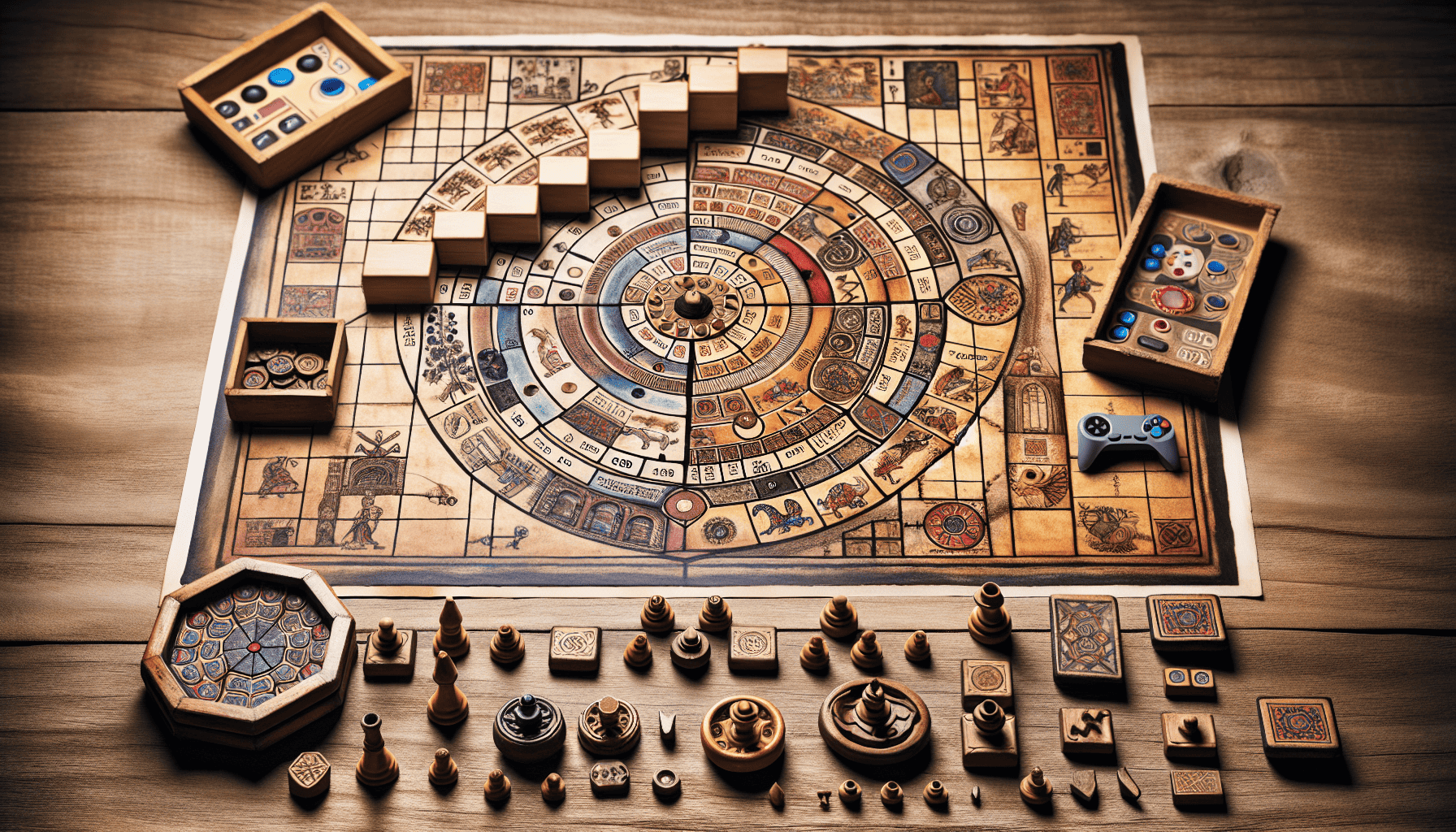Board games have been a part of human culture for thousands of years, evolving from simple gaming pieces found in ancient archaeological sites to complex strategic challenges enjoyed by millions around the world. These games have transcended mere entertainment, offering insights into the cultures and times in which they were created and played.
Ancient Beginnings
The earliest known board games can be traced back to around 5000 BC in the ancient civilizations of Mesopotamia and Egypt. Excavations have revealed game boards and pieces that demonstrate the importance of these games in social and cultural contexts. The Royal Game of Ur, discovered in the 1920s in modern-day Iraq, is one such example, thought to have been played as early as 2600 BC. It was a race game, similar in some respects to backgammon, and involved strategy and luck.
Similarly, the Egyptians enjoyed Senet, a game that dates back to around 3100 BC. With its beautifully crafted boards and intricate rules, Senet was more than just a pastime; it had religious connotations, symbolizing the journey to the afterlife. Hieroglyphic inscriptions suggest that playing Senet was associated with good fortune and the favor of the gods.
The Global Spread
As civilizations interacted, they shared ideas, art, and, naturally, games. The ancient Greeks and Romans developed and adopted games that involved intellectual skill as much as luck. Petteia, used later by the Romans in their version called Latrunculi, was a precursor to strategies seen in later games like chess.
In Asia, the global spread of board games took its own path. Around the 6th century AD, the game Chaturanga emerged in India, widely considered the direct ancestor of chess. Its spread across Persia and into the Islamic world led to further evolutions, culminating in the modern chess game. Meanwhile, in China, Go emerged over 4,000 years ago and remains incredibly popular today, valued for its deep strategy.
Medieval to Modern Times
During the Middle Ages, European societies saw a growing interest in board games stemming from their intersections with other cultures during events like the Crusades. This exposure to various games led to the creation of distinctive regional variations and new games altogether.
The invention of the printing press in the 15th century drastically changed the board game landscape, making mass production possible. This led to the standardization of games like playing cards and, eventually, new board games that were affordable and accessible to a broader audience.
The 19th and 20th centuries marked significant innovation in board games, with the introduction of timeless games like Monopoly, Scrabble, and Clue. Monopoly, originating from a design by Elizabeth Magie called The Landlord's Game, was intended to critique the consequences of land monopolies. Its mass production during the Great Depression turned it into a family staple. Scrabble and Clue followed suit, offering vocabularic and deductive challenges, respectively.
The Contemporary Era
In recent decades, board games have experienced a renaissance, becoming a part of mainstream culture with the introduction of modern classics like Catan, Ticket to Ride, and Carcassonne. The increasing popularity of tabletop games has been facilitated by a combination of nostalgia, innovative game mechanics, and the physical social interaction they offer in an increasingly digital world.
Moreover, the advent of crowdfunding platforms has empowered creative developers and indie publishers to introduce revolutionary tabletop experiences. Themes now range from historical simulations to fantastical epics, appealing to niche and broad audiences alike.
Conclusion
From simple stone gaming pieces to intricate games of strategy, board games have endured as an ever-evolving form of entertainment. They are windows into the past, reflecting the culture and values of the societies they originated from, while continuously adapting to the tastes and preferences of new generations. As board games continue to evolve, one thing remains constant: their ability to bring people together in fun, challenge, and discovery.
